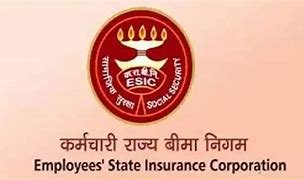Comprehensive Guide to the Employees' State Insurance Act (ESIC) for beginners.

Introduction
The Employees’ State Insurance Act, 1948 (ESIC), is a landmark piece of legislation in India aimed at providing social security and health insurance to workers. This blog aims to give a detailed overview of the ESIC Act, covering its various aspects and benefits.
What is ESIC?
The Employees’ State Insurance Corporation (ESIC) is a statutory body under the Ministry of Labour and Employment, Government of India. The ESIC Act was enacted to provide financial protection and medical care to employees in case of sickness, maternity, disablement, and death due to employment injury.
Objectives of the ESIC Act
- Medical Benefits: Providing comprehensive medical care to employees and their families.
- Cash Benefits: Financial assistance during periods of physical distress due to sickness, maternity, or employment injury.
- Rehabilitation Allowances: Facilitating rehabilitation of employees who suffer physical disablement due to employment injury.
- Vocational Training: Providing vocational training to employees who have been permanently disabled.
Coverage and Applicability
The ESIC Act applies to:
- Non-seasonal factories employing 10 or more employees.
- Shops, hotels, restaurants, cinemas, road motor transport undertakings, and newspaper establishments employing 10 or more employees.
- Private medical and educational institutions in certain states employing 10 or more persons.
The Act does not apply to employees earning more than ₹21,000 per month (as of the latest amendment) or to those covered under the Workmen’s Compensation Act.
Key Features of the ESIC Act
- Medical Benefits
Full Medical Care: This includes outpatient and inpatient treatment, specialist consultations, and follow-up care.
Family Coverage: Medical care is also extended to the employee’s family members.
Reimbursement: Reimbursement of expenses if treatment is taken from non-ESI hospitals under specific conditions.
- Sickness Benefits
Cash Benefit: Paid at the rate of 70% of the average daily wages for a maximum of 91 days in a year.
Extended Sickness Benefit: Up to 2 years for specified long-term diseases at 80% of the average daily wages.
- Maternity Benefits
Cash Benefit: Paid for 26 weeks (extendable by 4 weeks) at the full wage rate.
Medical Care: Free pre-natal and post-natal care.
- Disablement Benefits
Temporary Disablement: Paid at 90% of the average daily wages for the entire period of disablement.
Permanent Disablement: Monthly payment based on the extent of loss of earning capacity as determined by a Medical Board.
- Dependents’ Benefits
Monthly Pension: Provided to dependents in case of death due to employment injury or occupational hazards.
Distribution: Pension is distributed among the widow, minor children, and dependent parents.
- Funeral Expenses
Lump Sum Payment: A lump sum payment of ₹15,000 towards funeral expenses.
- Other Benefits
Rehabilitation Allowances: For injured employees undergoing vocational training.
Confinement Expenses: For insured women or wives of insured persons in case confinement occurs at a place where necessary medical facilities under the ESIC are not available.
Contributions to ESIC
Employee’s Contribution: 0.75% of the wages.
Employer’s Contribution: 3.25% of the wages.
Government’s Contribution: Provides a certain percentage for the initial few years of implementation in newly covered areas.
Compliance and Registration
Registration: Every employer covered under the Act must register their establishment with ESIC within 15 days from the date of applicability.
Contribution Payment: Contributions are to be paid monthly.
Record Keeping: Employers must maintain records and submit returns as prescribed by ESIC.
FAQs on ESIC Act
- What is the ESIC Act?
The ESIC Act provides social security and health insurance to employees in India.
- Who is covered under the ESIC Act?
Employees earning ₹21,000 or less per month in specified establishments with 10 or more employees.
- How are contributions to ESIC calculated?
Employees contribute 0.75% of their wages, while employers contribute 3.25%.
- What medical benefits are available under ESIC?
Full medical care, including outpatient and inpatient treatment, specialist consultations, and more.
- How long can I receive sickness benefits?
Up to 91 days in a year, extendable for long-term diseases.
- What maternity benefits does ESIC provide?
Cash benefits for up to 26 weeks and medical care.
- What is the disablement benefit?
Cash benefits for temporary or permanent disablement due to employment injury.
- Who is eligible for dependents’ benefits?
Dependents of an insured person who dies due to employment injury.
- What are the funeral expenses under ESIC?
A lump sum payment of ₹15,000.
- How do employers register under the ESIC Act?
Employers must register their establishment with ESIC within 15 days from the date of applicability.
- Can employees earning more than ₹21,000 be covered under ESIC?
No, employees earning more than ₹21,000 per month are not covered.
- Are private sector employees eligible for ESIC benefits?
Yes, if they meet the wage and establishment criteria.
- What are the extended sickness benefits?
Benefits for long-term diseases up to 2 years at 80% of wages.
- How are the ESIC contributions paid?
Monthly, by the employer and employee.
- Can family members avail ESIC medical benefits?
Yes, the employee’s family members are also covered.
Conclusion
The ESIC Act is a crucial piece of legislation that provides comprehensive social security to workers in India. It ensures that employees and their families have access to medical care and financial assistance during periods of sickness, maternity, and employment injury. Employers must comply with the ESIC Act to ensure their workers are protected under this beneficial scheme. Understanding the ESIC Act helps both employers and employees to avail the benefits and fulfil their responsibilities under the law.
————————————————————————————————————-
#ESIC #EmployeeBenefits #LabourLaw #SocialSecurity #HealthInsurance #EmployeeWelfare #WorkersRights #IndiaLabourLaw #EmploymentLaw #EmployeeProtection #MedicalBenefits #SicknessBenefits #MaternityBenefits #DisablementBenefits #DependentsBenefits #EmployeeHealth #FinancialSecurity #WorkplaceSafety #ESICAct1948 #EmployerResponsibilities #EmployeeRightsIndia #LabourLawIndia #ESIContribution #WorkplaceBenefits #ESICompliance #EmployeeCoverage #VocationalTraining #RehabilitationAllowance #EmploymentInjury #HealthCareForEmployees #InsuranceForWorkers.
